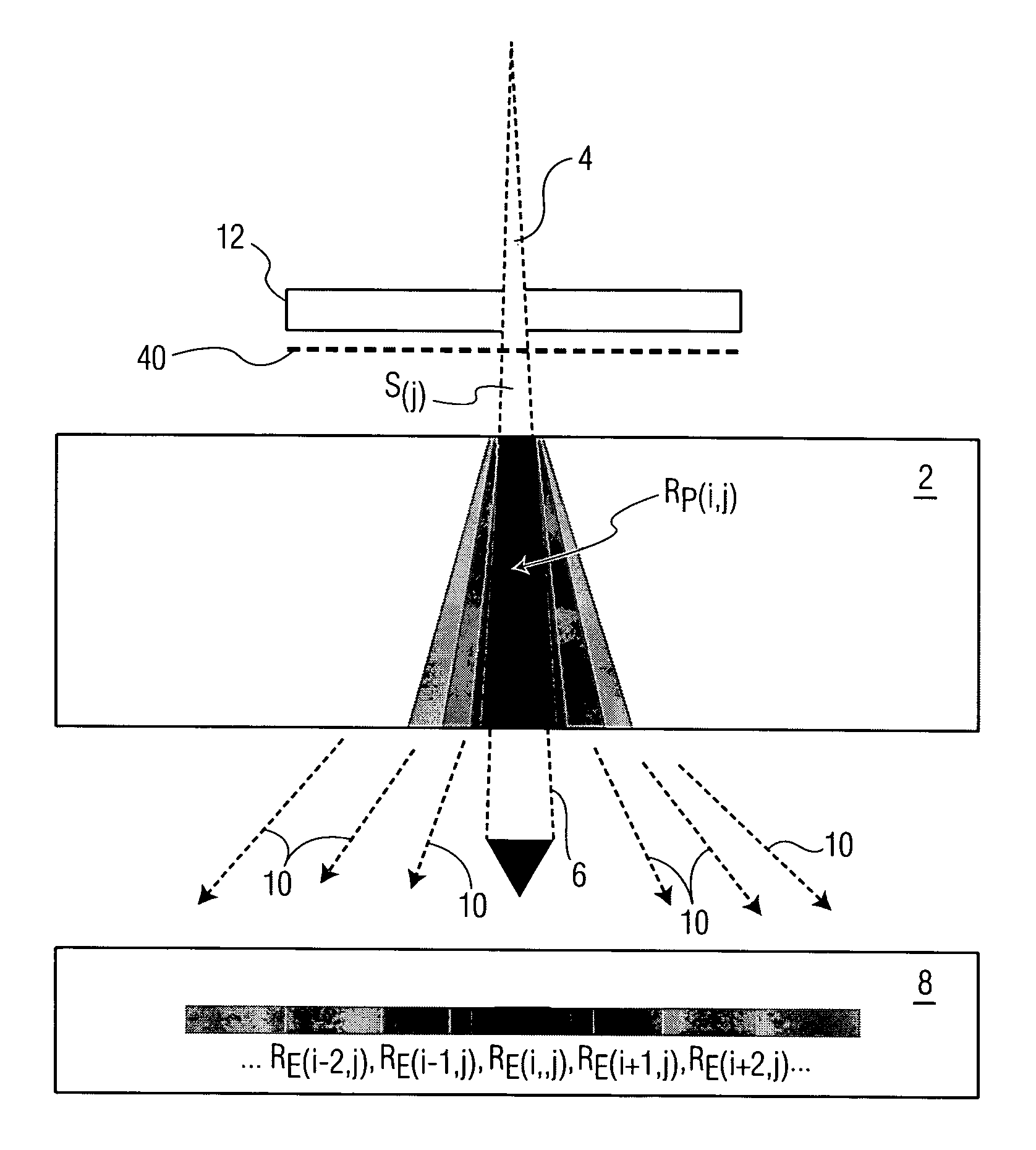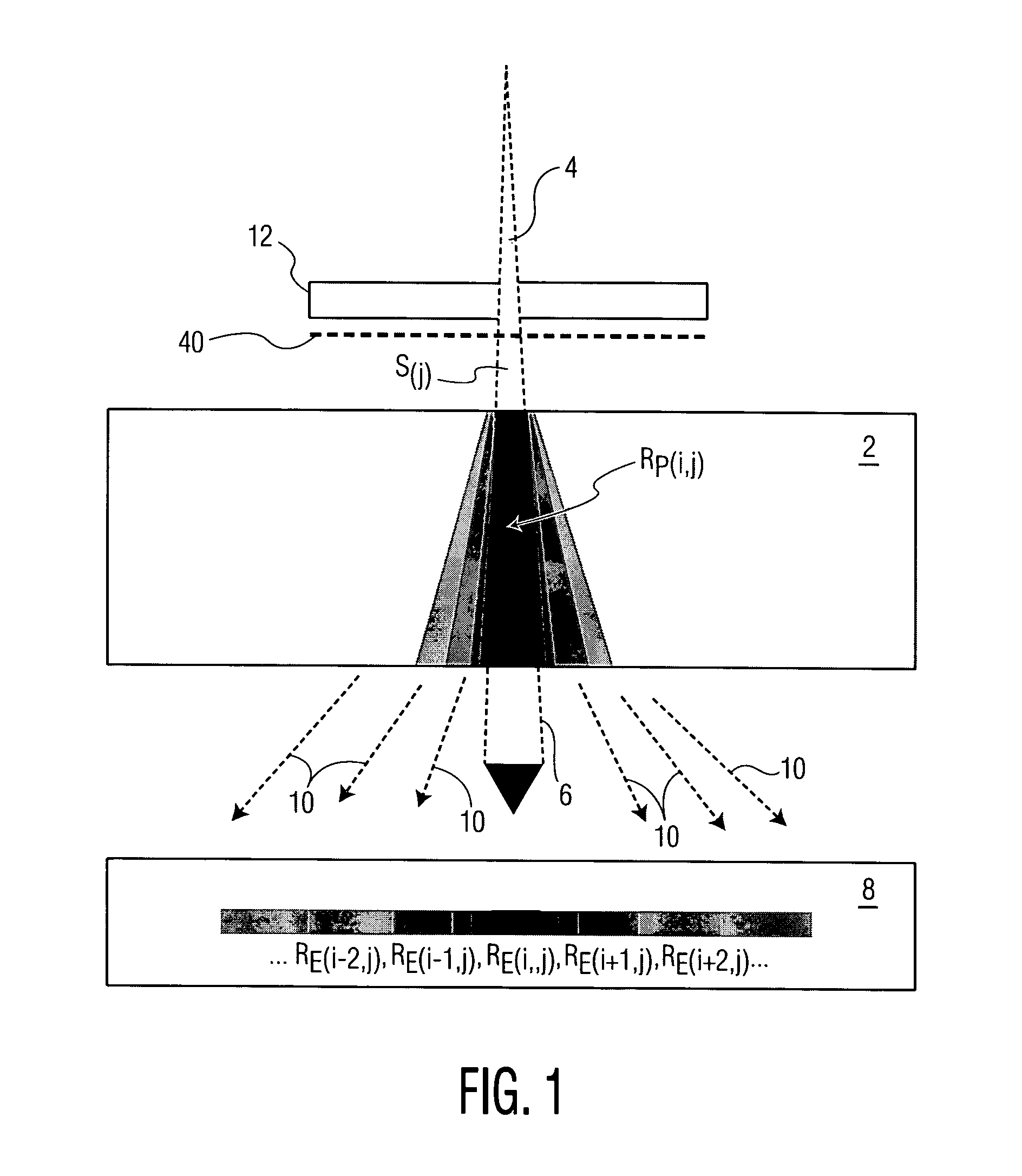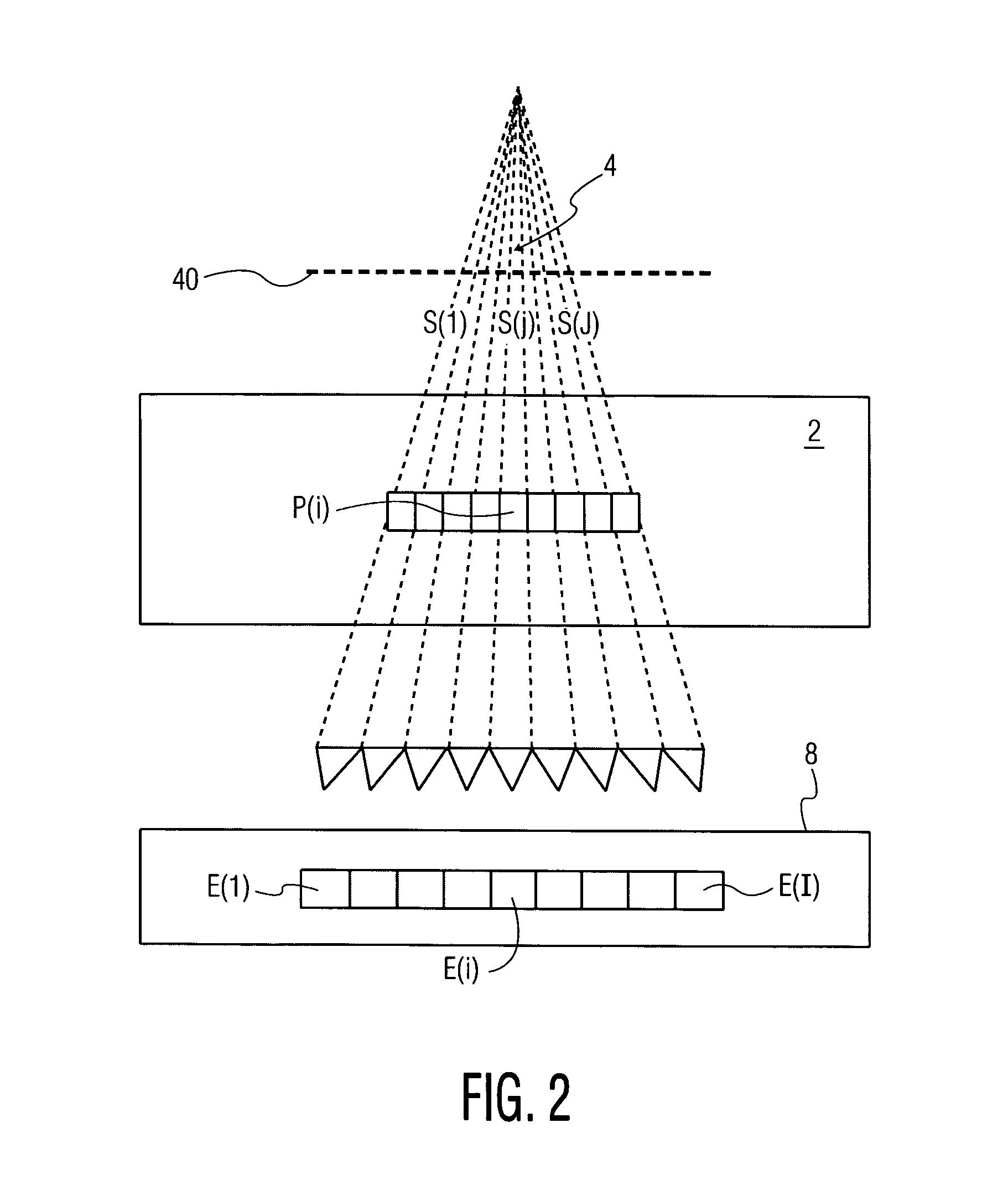Method for verification of intensity modulated radiation therapy
a radiation therapy and intensity technology, applied in radiation therapy, x-ray/gamma-ray/particle irradiation therapy, therapy, etc., can solve the problem of insufficient beam modeling, less accurate calculation algorithms than monte carlo radiation transport methods, and insufficient beam modeling. problem, to achieve the effect of reducing intensity, accurately calculated, and superior accuracy
- Summary
- Abstract
- Description
- Claims
- Application Information
AI Technical Summary
Benefits of technology
Problems solved by technology
Method used
Image
Examples
Embodiment Construction
[0043]Various embodiments of the present invention will now be described in detail with reference to FIGS. 1 through 21. In general terms, the method of the present invention overcomes the drawbacks in the prior art. Also, unlike the prior art, the method of the present invention provides inverse verification of a radiation delivery without using any computational iteration through use of a method that fully calculates MC (Monte Carlo) Responses in a patient, and also in an EPID. The method reconstructs an intensity map that is used to deliver a radiation beam in a patient, in addition to providing reconstruction for the dose deposited in a patient. The present method takes advantage of the high-level of accuracy associated with the MC method to fully model the radiation transport, the measured value of transmitted dose, and the anatomical representation of a patient under treatment. It is believed that the present method provides one of the most accurate IMRT verification and dose ...
PUM
 Login to View More
Login to View More Abstract
Description
Claims
Application Information
 Login to View More
Login to View More - R&D
- Intellectual Property
- Life Sciences
- Materials
- Tech Scout
- Unparalleled Data Quality
- Higher Quality Content
- 60% Fewer Hallucinations
Browse by: Latest US Patents, China's latest patents, Technical Efficacy Thesaurus, Application Domain, Technology Topic, Popular Technical Reports.
© 2025 PatSnap. All rights reserved.Legal|Privacy policy|Modern Slavery Act Transparency Statement|Sitemap|About US| Contact US: help@patsnap.com



